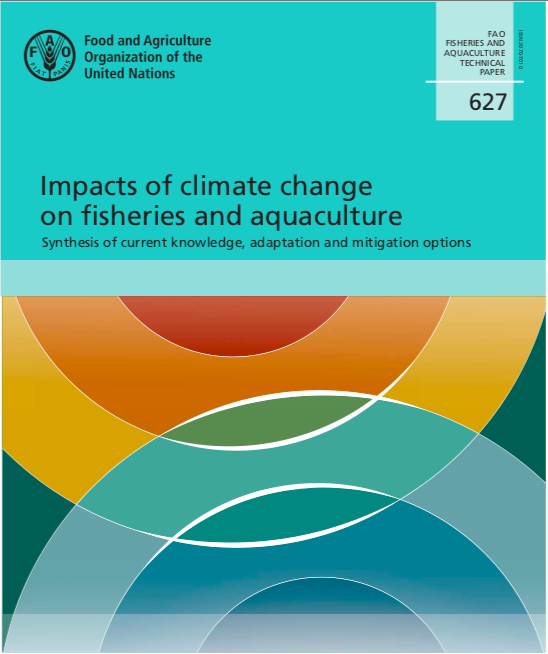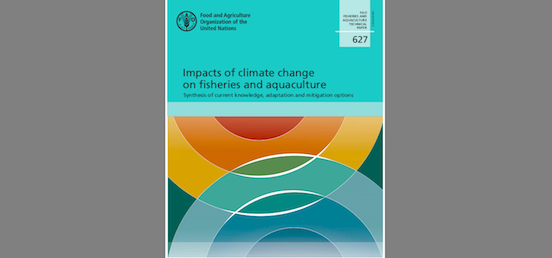The technical paper has been prepared by over 90 scientists from over 20 countries with a view to assisting countries in the development of their National Determined Contributions (NDCs) to the Paris Climate Agreement, the next round of which is to be submitted by 2020, both for adaptation and mitigation actions.
The publication contextualizes the topic of climate change in fisheries and aquaculture in terms of poverty alleviation and the implementation of existing policy commitments, such as UN Agenda 2030 and the Paris Climate Agreement, and takes into account current and expected socio-economic dependencies on the sector. It includes marine and inland capture fisheries, as well as aquaculture, recognizing that the level of evidence and responses at global, regional and national scales will differ between sub-sectors.
Projections of future catch potentials for marine fisheries are used to describe the expected trends by Exclusive Economic Zone, while regional chapters covering eighteen regions provide a finer analysis of marine capture fisheries and climate change implications in terms of ecological impacts, social and economic development, consequences for fisheries management and examples of recommended or already implemented adaptation options. The sector of Inland fisheries, highly vulnerable to climate change because of the low buffering capacity of water bodies, is analysed in 149 countries and in 8 selected river basins. Short and long-term impacts of climate change on aquaculture are described and presented through country by country analyses of global vulnerability. The Technical Paper also investigates the impacts of extreme events, as there is growing confidence that their number is on the increase in several regions, and is related to anthropogenic climate change. It explores the damage and loss to the fishery and aquaculture sectors and calls for a shift from reactive disaster management to proactive risk management. Moreover, the technical paper provides a toolbox of existing and recommended fisheries and aquaculture risk reduction, adaptation and disaster response, as well as guidance for the development and implementation of sectoral adaptation strategies.
Reference:
Barange M, Bahri T, Beveridge MCM, Cochrane KL, Funge-Smith S, Poulain F, eds. (2018) Impacts of climate change on fisheries and aquaculture: synthesis of current knowledge, adaptation and mitigation options. FAO Fisheries and Aquaculture Technical Paper No. 627. Rome, FAO. 628 pp


